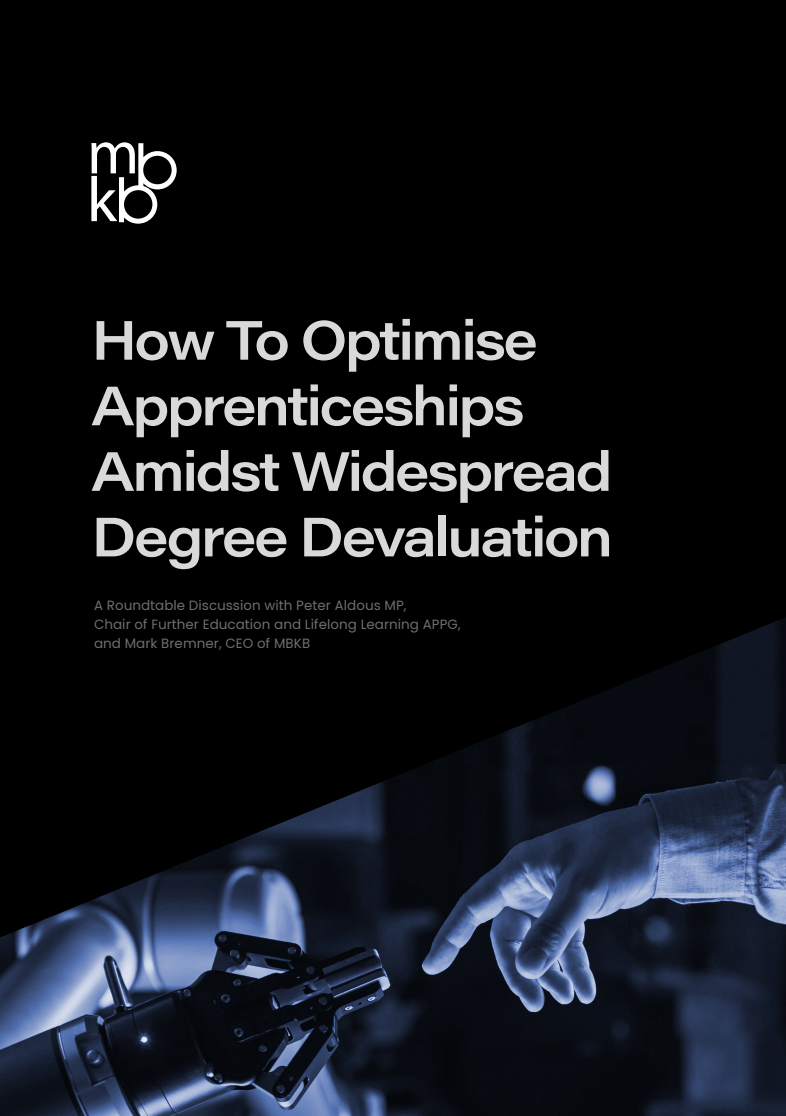Driven by a need to improve productivity, reduce unemployment and increase economic growth, the United Kingdom is striving to optimise the skills and training provision among its workforce.
To increase efficiency and minimise periods spent out of the labour market, the Prime Minister has pledged to “crack down” on “rip off” university degrees while simultaneously promoting the increased uptake of apprenticeships and other avenues within further education. Plans for sweeping reform aim to use the further education sector as the driving force behind powering the potential of the UK’s next generation, and as the catalyst for economic expansion.
The government’s ambitious agenda has, however, stirred concerns about the preparedness of the further education sector to handle both increased demand and heightened expectation. To examine these concerns, and to offer potential solutions for optimising and adapting the further education sector for the future, leading independent training provider MBKB invited major apprenticeship employers and training providers to a roundtable discussion in Westminster on 1 November 2023 together with Waveney MP, and Chair of the All-Party Parliamentary Group for Further Education and Lifelong Learning, Peter Aldous.
Entitled: ‘How to optimise apprenticeships amidst widespread degree devaluation,’ the event sought to address some of the key issues currently affecting the sector, including: high apprenticeship dropout rates; minimum duration requirements; delivery of effective online provision; and shortcomings with End-Point Assessment Organisations.
The overarching conclusions of the discussion centred around the need for greater flexibility within the system. Attendees agreed that regulatory rigidity was a key contributor to issues related to poor retention, recruitment, and programme delivery.
This report, divided thematically, serves as a summary of the discussions held and is intended to provide a contribution to the ongoing debate on how to solve the challenges facing the further education sector and to improve the quality of training provision across England and Wales.
